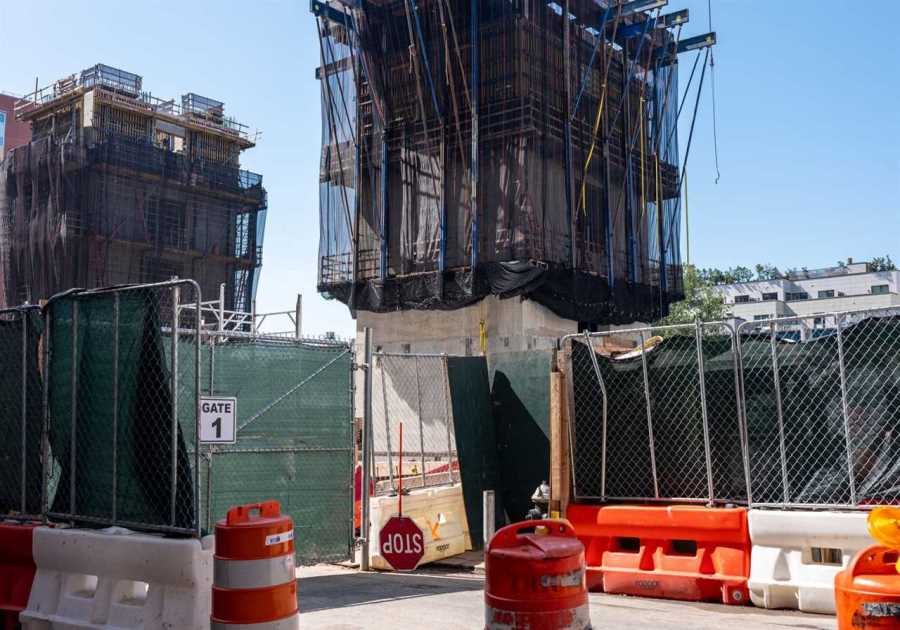Richard Drew/AP
- Wall Street remains mixed on its recession outlooks for 2024.
- Bank of America broke down the top factors to watch for ahead of a potential downturn.
- A recession is not Bank of America's near-term base case.
So far, the US economy has staved off a recession, but Wall Street remains mixed on its outlook for the year ahead. Bank of America, for its part, does not include a recession in its near-term base case, but the head of CIO market strategy for Merrill and BofA Private Bank, Joseph P. Quinlan, said studying historical trends can help inform positioning and outlooks for investors.
In an October note, he broke down what to know ahead of a potential slowdown.
First, Quinlan pointed out that recessions are indeed commonplace, and part of a dynamic American business cycle.
The country has seen 12 recessions in the post-war era, according to the National Bureau of Economic Research, stemming from causes ranging from monetary policy to economic shocks.
Fluctuations in consumer spending play a key role in a downturn, Quinlan noted, as do borrowing costs. The Federal Reserve has raised interest rates 11 times since early 2022, and over recent months many experts have predicted personal consumption would have faded by now as a result.
A strong labor market, however, has largely prevented that from happening so far.
Second, the strategist said "rolling recessions" are more common than a national recession for something as large as the US's $26 trillion economy. With so many different sectors, he said, "[s]ome are ebbing, while others are flowing," such as when energy is slumping while housing is thriving.
"The key point is this: 'Rolling recessions' are not uncommon in the US given the size and diversity of the US economic base," Quinlan said. "Periodic soft patches in various sectors or industries are typically not enough to tank the national economy."
Third, investors should also understand that recessions typically do not last long.
"[T]hey are more transitory than structural or terminal," Quinlan said, adding that the longest recession of the post-war era was 18 months, following the 2008 financial crisis. The shortest, on the other hand, was the start of the COVID-19 pandemic between February and April 2020.
On average, recessions last just over 10 months, Bank of America said.
Upside for markets and investors
And fourth, according to Quinlan, is that investors must realize the economy often comes out stronger at the other end of a downturn.
"Nothing is more emblematic of the 'creative destruction' narrative of the US economy than a recession," he said. "Recessions are akin to forest fires: Just as the latter clears out the unhealthy trees and underbrush...recessions take out weaker companies or corporate zombies, reduce excess capacity, encourage more innovation, and help pave the way for healthier firms/sectors to drive future growth."
The 2001 recession popped the bubble of overinflated stock valuations, for example, and paved the way for the internet-fueled growth.
Similarly, the 2008 slump ultimately served to strengthen capital markets.
That leads to Quinlan's fifth and final point: Recessions can be favorable entry points for stock investors.
"Recessions — or the threat thereof — should be bought, not sold, notwithstanding the swirl of negative macro news," he said.
The strategist explained that US equities typically peak several months ahead of a recession, based on historical trends, and that markets then tend to bottom before recessions officially end.
Stock returns from post-recession lows have proved historically strong, with an average of 19.7% 3-month returns, 28% 6-month returns, and 43.7% 12-month returns.
"This means that the market will typically begin its recovery from the trough while the economic data are still showing a contraction in output," Quinlan said. "The upshot: Investors waiting for economic growth to turn positive could therefore potentially miss several months of positive returns in the initial stages of the new market upturn."
Read More
By: [email protected] (Phil Rosen)
Title: 5 things investors should know about a coming recession, according to Bank of America
Sourced From: markets.businessinsider.com/news/stocks/recession-outlook-investors-bank-america-wall-street-markets-finance-2023-10
Published Date: Thu, 23 Nov 2023 14:30:01 +0000
Did you miss our previous article...
https://trendinginbusiness.business/politcal/how-walmart-kroger-and-other-major-retailers-are-ramping-up-selfcheckout-tech-to-combat-theft
.png)





